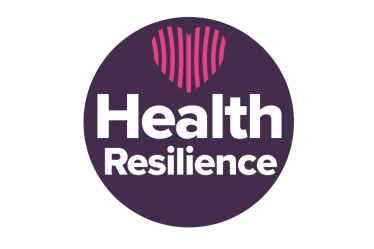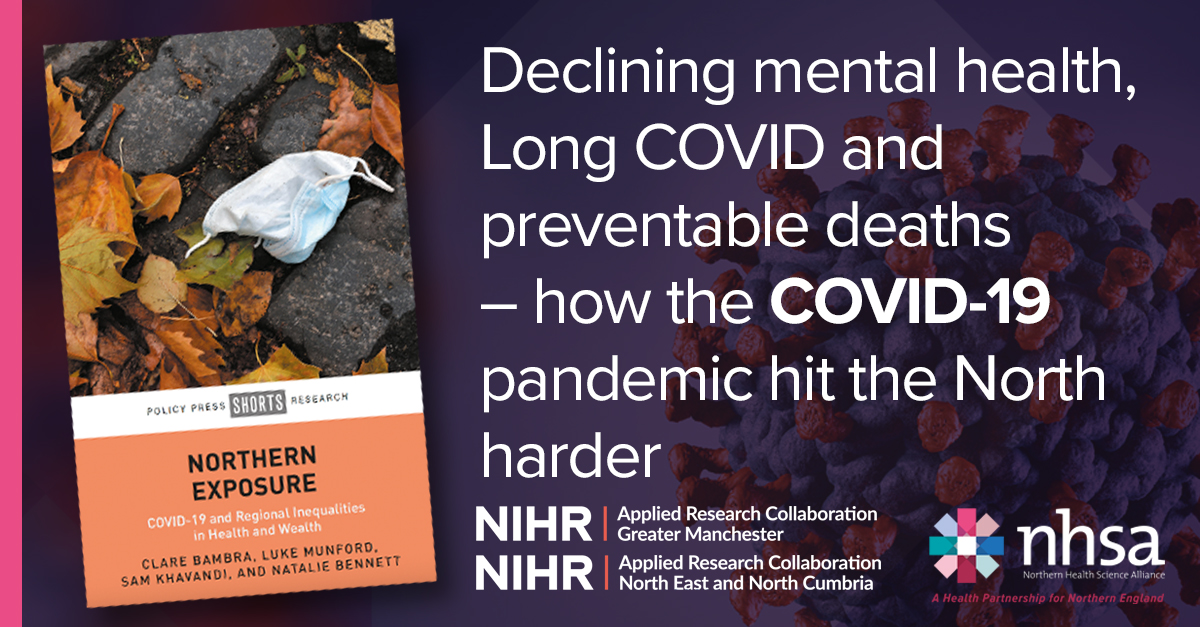Deprivation and COVID-19 death
Deprivation and COVID-19 death

New research highlights the unequal impact that deprivation has on COVID-19 deaths in the North of England.
New evidence published today in the leading scientific journal Health and Place has found that while COVID-19 death rates were consistently higher in areas of socioeconomic disadvantage across the country, they were even higher in deprived areas of the North.
The research shows that those living in the most deprived communities in the North of England shouldered the greatest burden from COVID-19.
There was evidence of an association between COVID-19 deaths and area-level deprivation – but the impacts of deprivation on deaths was higher in the North: the researchers call this the ‘deprivation amplification’.
The most deprived local areas in the North had 14.5% more deaths per 10,000 than those in equally deprived areas in the rest of England.
This latest research was jointly undertaken by Dr Luke Munford and Sam Khavandi from the University of Manchester and National Institute for Health and Care Research (NIHR) Applied Research Collaboration Greater Manchester (ARC-GM), and Professor Clare Bambra from Newcastle University and NIHR ARC North East and North Cumbria.
Lead author on the study, Dr Luke Munford, Senior Lecturer of Economics from the University of Manchester and NIHR ARC-GM Deputy Lead for Economic Sustainability, said:
“Our research provides clear evidence that those living in the most deprived communities in the North of England shouldered the greatest burden from COVID-19.”
Co-author Prof Clare Bambra, Inequalities Lead for the NIHR Applied Research Collaboration (ARC) North East and North Cumbria added:
“Our research shows that COVID-19 is an unequal pandemic. People in the most deprived communities in the North have been most impacted with higher deaths. The government’s Levelling Up agenda needs to be revitalised if it is to reduce regional health inequalities.”
Commenting on the research, Hannah Davies of the Northern Health Sciences Alliance stated:
“This alarming and important research shows just how important the levelling up agenda is if we are to tackle the deep inequalities which undermine the fabric of our society.
“The government must take place-based action to improve health outcomes otherwise we risk undermining the health and wealth of the whole country.”
The findings add to a growing body of evidence of an unequal pandemic resulting from inequalities that are caused by the social factors that influence health – including housing conditions, employment and access to good-quality health care.
Across the country, COVID-19 exacerbated existing health inequalities, with the brunt of deaths experienced in socially disadvantaged communities. Reducing these inequalities requires long-term national action.
The COVID-19 pandemic took place against a backdrop of social and economic inequalities.
The authors’ previous research had already identified significant regional inequalities with high rates of COVID-19 deaths in the north regions.
However, this new research shows that there was an amplification of the effects of deprivation on COVID-19 deaths in the most deprived areas of the North.
More about the study
Researchers analysed official data of COVID-19 death rates from March 2020 to April 2021 by local area (Middle Super Output Areas – MSOAs) to understand the relationship between deprivation, region and COVID-19 mortality rates.
They found that across England, the most deprived 20% of local areas had higher mortality than the least deprived (44.1% more COVID-19 deaths/10,000). However, the most deprived local areas in the North (Yorkshire and Humber, North West and North East) fared worse than equally deprived areas in the rest of England (14.5% more deaths/10,000 in the Northern deprived areas).
There was evidence of an association between COVID-19 deaths and area-level deprivation – but the impacts of deprivation on deaths was higher in the North: the researchers call this the ‘deprivation amplification’.
Understanding the relationship between COVID-19 mortality rates and deprivation is complex.
Deprivation is affected by wider social determinants of health such as housing, working conditions, unemployment, healthcare access etc. This can cause higher exposure to the virus, for example people in low-income jobs are less amenable to remote working so employees were less able to benefit from local lockdown restrictions and working from home. Self-isolation is also harder in overcrowded housing and densely populated areas. In addition, people living in more deprived areas of the North have higher clinical risk factors (such as underlying health conditions like heart disease or diabetes).
Read the full research paper – published in Health and Place, 15/11/2022






